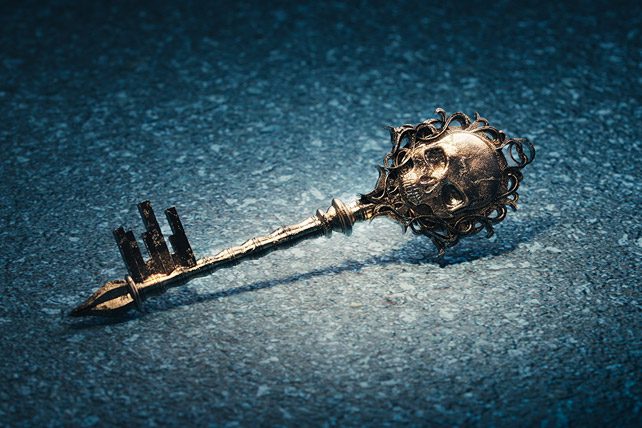We have different vocations with respect to the jobs and tasks God gives us in this life. But we all share in the vocation of death. Every one of us is called to die. That vocation is as much a calling from God as is a “call” to the ministry of Christ. Sometimes the call comes suddenly and without warning. Sometimes it comes with advance notification. But it comes to all of us. And it comes from God.
I am aware that there are teachers who tell us that God has nothing to do with death. Death is seen strictly as the fiendish device of the devil. All pain, suffering, disease, and tragedy are blamed on the Evil One. God is absolved of any responsibility. This view is designed to make sure that God is free of blame for anything that goes wrong in this world. “God always wills healing,” we are told. If that healing does not happen, then the fault lies with Satan—Or with us. Death, they say, is not in the plan of God. It represents a victory for Satan over the realm of God.
Such views may bring temporary relief to the afflicted. But they are not true. They have nothing to do with biblical Christianity. They are intended to absolve God of any blame, but they contradict His sovereignty.
Yes, there is a devil. He is our archenemy. He will do anything in his power to bring misery into our lives. But Satan is not sovereign. Satan does not hold the keys of death.
When Jesus appeared in a vision to the Apostle John on the Isle of Patmos, He identified Himself with these words: “Do not be afraid; I am the First and the Last. I am He who lives, and was dead, and behold, I am alive forever-more. Amen. And I have the keys of Hades and of Death” (Rev. 1:17–18).
Jesus holds the keys to death, and Satan cannot snatch those keys out of His hand. Christ’s grip is firm. He holds the keys because He owns the keys. All authority in heaven and on earth has been given to Him. That includes all authority over life and death. The angel of death is at His beck and call.
Dualism is on a collision course with Christianity. The Christian faith has no stock in dualism. Satan may be opposed to God, but he is by no means equal to God. Satan is a creature; God is the Creator. Satan is potent; God is omnipotent. Satan is knowledgeable and crafty; God is omniscient. Satan is localized in his presence; God is omnipresent. Satan is finite; God is infinite. The list could go on. But it is clear from Scripture that Satan is not an ultimate force in any sense.
We are not doomed to an ultimate conflict with no hope of resolution. The message of Scripture is one of victory—full, final, and ultimate victory. It is not our doom that is certain, but Satan’s. His head has been crushed by the heel of Christ, who is the Alpha and Omega.
Above all suffering and death stands the crucified and risen Lord. He has defeated the ultimate enemy of life. He has vanquished the power of death. He calls us to die, a call to obedience in the final transition of life. Because of Christ, death is not final. It is a passage from one world to the next.
God does not always will healing. If He did, He would suffer endless frustration, seeing His will being repeatedly thwarted in the deaths of His people. He did not will the healing of Stephen from the wounds inflicted by the stones that were hurled against him. He did not will the healing of Moses, of Joseph, of David, of Paul, of Augustine, of Martin Luther, of John Calvin. These all died in faith. Ultimate healing comes through death and after death.
Teachers argue that there is healing in the atonement of Christ. Indeed there is. Jesus bore all of our sins on the cross. Yet none of us is free from sin in this life. Likewise, none of us is free from sickness in this life. The healing that is in the cross is real. We participate in its benefits now, in this life. But the fullness of the healing from both sin and disease takes place in heaven. We still must die at our appointed times.
This article originally appeared here and is used by permission.

